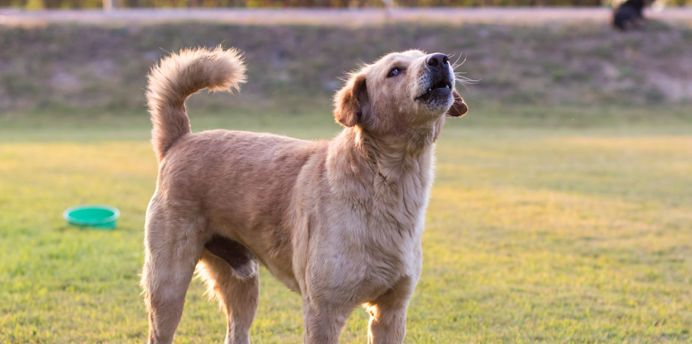Animal nuisance
Dog problems
Dog attacks
If you are involved in a dog attack
1. Seek immediate help
Seek medical or veterinary attention if required - Call 000 if urgent medical care is needed. It’s important to take your dog to the vet even if there are no apparent injuries.
2. Gather Information
Gather as many details as you can and write them down. This can include:
- Date, time, location.
- Description of the dog and their owner (registration tag, name tag, breed, colour, sex, markings, collar size and colour).
- Description of the owner (name, address, contact phone number, male or female, age, hair colour, clothing).
- If a car was involved and the offender drove away with the dog – car registration number, make, model and colour.
- A description and photographs of any injuries to yourself and your pet.
- Note if you have seen the owner/dog return to an address.
- Note down the name/number of any witnesses.
- Note if the owner called the dog by a specific name.
3. Contact Council
The City of Port Phillip Animal Management team takes every reported dog attack seriously. We encourage anyone who has been involved in an attack to report it immediately to Council by calling 03 9209 6777 or through My Port Phillip. When making the report, give all of the information you have about the incident.
An Animal Management Officer will be in contact to clarify details, finalise your statement and discuss the next steps of the investigation.
The Dog Attack Reporting and Prevention Guide explains what information is needed when reporting and what the next steps are, so it is important to read this document if you have been involved in a dog attack incident.
Declared and restricted breed dogs
The Domestic Animals Act 1994 has different laws for declared dangerous, declared menacing and restricted breed dogs.
Cat problems
Cats can be loyal companions to humans. However, The City of Port Phillip understands cats are adventurous animals that can roam far distances from their property. Roaming cats in our neighbourhood are a huge concern to the community. Cats can prey on wildlife, get hit by cars, be attacked by other cats and spread disease.
Cats must be kept to their owner's property between sunset and sunrise.
If an unwanted cat is coming onto your property, Council can provide residents with a cat trap. Humane traps can be hired to residents free of charge for up to two weeks at a time. Animal Management Officers will inspect your property to determine if your property is suitable to set a trap.
Another problem is people feeding stray cats but not taking full ownership or responsibility for them. People feed stray cats because they genuinely care about them and feel sorry for them. However, many people don’t realise they are causing a bigger problem by feeding, but not owning (eg desexing and identifying), these cats.
Feeding stray cats helps contribute to ongoing reproduction leading to litters of kittens being born each year which can result in a life of disease and neglect. This contributes to the tragic cat overpopulation problem in Australia.
If you want to help, you must either take ownership of the cat or call Council. Please don’t feed the bigger problem.
For more information, see Agriculture Victoria - Cats.
Magpies and swooping birds
Swooping birds may be a frightening or even dangerous experience.
Native birds swoop in urban and rural areas, in parks and gardens, along bike tracks and in schoolyards, or anywhere the birds are nesting. By understanding why native birds swoop and how to avoid them, the breeding season may be less stressful for people.
Swooping birds are the responsibility of the Department of Agriculture Victoria, which encourages Victorians to add swooping locations to its interactive Magpie Map. Further information can also be found on their site, including resources such as helmet stickers and brochures on swooping birds.
Note: It is most important that any public safety concerns or incidents regarding swooping birds are reported promptly to Department of Environment, Land, Water and Planning so that a site assessment may be undertaken and remedial action considered.
Foxes
In Victoria, red foxes (Vulpes Vulpes) are declared as established pest animals under the Catchment and Land Protection Act 1994 (the Act). Under the Act, landowners have a responsibility to take all reasonable steps to prevent the spread of, and as far as possible eradicate, established pest animals from their land.
Red foxes are highly adaptable and well-established pest species in urban and inner-city environments. This makes the management of foxes very difficult, as the control measures which can be used in rural environments are not suitable for urban and inner-city environments.
Council is limited in what can be done to control foxes in the City of Port Phillip, due to the potential risk to domestic animals. Council does not remove foxes, this needs to be done by a licensed pest controller.
Steps that you can take to discourage foxes from public open spaces and private property include:
- do not encourage foxes to become pets by feeding them
- ensure chickens, ducks and rabbits are suitably caged at night in secure, roofed coops
- do not leave food scraps or pet food in outdoor areas at night
- ensure compost heaps and bins are securely covered
- clean up fallen fruit from trees
- restrict access to underneath your house, blocking any holes
- assess your fencing for gaps and leaning objects that would enable easy access for foxes.
It is illegal to keep, or sell, established pest animals such as foxes.
For more information on fox control, visit Agriculture Victoria.
Contact us
Our Animal Management team is here to help. Get in touch if you have questions or would like a print version of any files.
Send us a message on My Port Phillip.
Email: pets@portphillip.vic.gov.au
